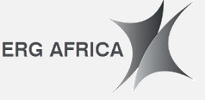Publication: International Mining
Date: 25 March 2022
The Musonoi River Valley in the Katanga region in the Democratic Republic of the Congo (DRC) has, for some decades, been the site of land degradation resulting from inadequate and ineffective tailings and other waste management systems.
The local water system and surrounding land has been subjected to pollution from more than 83.2 Mt of legacy tailings spread over an area 11-km long and up to 2.5-km wide. Additionally, 41.1 Mt of tailings have accumulated at the Kingamyambo Tailings Dam.
Remediating and mitigating this damage is now a primary goal of Eurasian Resources Group’s Metalkol Roan Tailings Reclamation (RTR), a reprocessing facility dedicated to cleaning up the historic tailings left by previous mining operators in the Kolwezi area of the DRC. By reclaiming and reprocessing copper and cobalt tailings in the region, the company says its approach goes beyond ‘do no harm’, actively addressing a history of environmental degradation and pollution.
The legacy tailings are extracted through hydraulic mining and dredging, reprocessed and then re-deposited into a modern, closely managed and centralised tailings storage facility. This is subject to regular inspection, monitoring and reporting, supported by a dedicated Engineer of Record and an independent laboratory. Currently Metalkol RTR can produce 21,000 t/y of cobalt, which is says is sufficient for three million electric vehicle batteries, alongside around 100,000 t/y of copper, the company says.
ERG also has reprocessing operations outside of Africa, including at Kazchrome in Kazakhstan, which, it says, is the world’s largest high-carbon ferrochrome producer by chrome content.
Established in 2019, ERG Recycling – ERG’s specialised company aiming to become the largest entity to reprocess industrial waste into commercial products in Kazakhstan – has already implemented many projects including the commissioning of a new workshop that reprocesses slag, dust and other fine waste into high-quality briquettes. This program to reprocess Kazchrome’s 14.7 Mt of slag stockpiles has been expanded, now processing over 100,000 t/y of slag.
These operations have been enhanced by the development of new technology. Having completed the first trial in 2020, the Slimes 2 Tailings Reprocessing project at Donskoy GOK has the potential to enhance Kazchrome’s output of chrome concentrate by recovering 55% of the chromium oxide in chrome-oxide bearing tailings using innovative flotation technology, the company says.
In Brazil, at ERG’s integrated project, BAMIN, which produces a premium 67% Fe grade iron ore and is ramping up to become one of the country’s largest standalone iron ore exporters, the company’s transition from an upstream to a downstream tailings model ensured continued compliance with both local regulations and international standards, it said. The group continues to study additional technological enhancements to ensure the construction and operation of a world-class facility.
The environmental benefits of reprocessing projects like these are very significant for the business and critical to local communities, according to the company.
“As more attention rightly turns towards environmental, social and governance (ESG) issues, it is crucial that tailings are dealt with and stored properly,” ERG said. “Aside from preventing significant issues, such as dam collapses, by reprocessing and responsibly storing these tailings, we are reducing local pollution risks more generally, increasing air quality and decreasing the likelihood of leaching toxic substances into surrounding habitats and water systems.”
Given the legacy of environmental degradation and serious consequences it poses, it is also necessary for mining companies to explore novel ways of rehabilitating the environment.
For example, ERG has been working with a team of agronomists from the University of Lubumbashi in the DRC to look into the experimental planting of trees and their growing potential at the Kingamyambo tailings dam.
Looking forward, these operations will support the sustainable development of affordable batteries and other clean energy technologies.
By producing critical raw materials, such as cobalt, without the risk and cost of needing to develop new mining projects, ERG says it can help make electric vehicles and other renewable technologies more accessible, helping facilitating the net-zero transition.
Pictured above is Metalkol RTR, ERG’s reprocessing facility in the DRC: the world’s second largest standalone cobalt producer
View the original article here: International Mining
